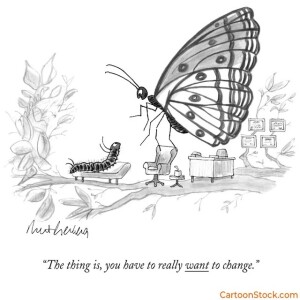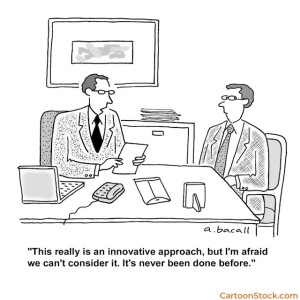Episodes

Sunday Jun 29, 2025
Sunday Jun 29, 2025
This week I want to talk to you about why you should try to consciously do things unconsciously! I know it sounds a bit paradoxical, but by consistently doing thing through repetition, it often makes things easier for you overall. It’s really quite liberating!
Have you ever witnessed a transformation from effortful to effortless? When you consciously do something enough until it becomes second nature, what you do then seems natural and unconscious. By consciously repeating tasks, you train your subconscious to take over, which then frees up your mental space. It’s really fascinating.
Think of driving, for instance. Initially, every action requires thought, but eventually, it becomes second nature. Or take cooking as another example. You initially have to meticulously read every line of a recipe, but as you make it more, you find that chopping, mixing, and seasoning become almost automatic.
Think of it as practising something intentionally, because by choosing to do something again and again unconsciously, you soon become more proficient at it. It’s a simple but profound way that you can turn the mundane into something magical, which then makes your daily experiences so much better.
Here are some other examples.
- At first, playing a musical instrument like a guitar or piano takes immense focus. But soon, your fingers find chords and notes automatically, which then allows you to immerse yourself more in the music without thought.- Or imagine learning a new language. It is always challenging at first, but with practice, you soon learn to think and respond in that language without conscious effort and your conversations become more fluid.- Or think of typing, which usually begins with hunting and pecking at keys. But if you practise it enough consistently, your fingers eventually glide over the keyboard effortlessly and translate your thoughts into text.
But be careful. While unconscious tasks initially seem beneficial, they can lead to complacency. A conscious approach allows for mindfulness and presence in the moment, allowing continuous learning and adaptation. Doing something unconsciously can actually hinder creativity in problem-solving and the ability to think outside the box.
So this week, remember that doing things automatically can enhance your efficiency and free mental space for creativity. However, be careful that it doesn’t lead to complacency or stifle your creativity. Ultimately, you need to balance everything, but go on, try and consciously do something unconsciously - it really works!

Sunday Jun 29, 2025
Sunday Jun 29, 2025
This week, I want to explain why there's never a right time for bad news. It’s often the phrase that echoes in our minds when unexpected things come at us. It feels sometimes like the universe is pointing out that we don’t have as much control as we think!
We often feel like we're just passengers on an unpredictable journey in life. No matter how meticulously we plan, life sometimes delivers news to us that seems to halt everything. Bad news respects no timelines or events and doesn't wait for convenient moments. It always finds its way in.
You may try to shield yourself, but I'm afraid that even the most unsuspecting days bring challenges. Don’t worry, we all have surprise moments when the world seems to shift beneath us. We may pretend we're prepared for things, but the truth is we're never truly ready for unexpected blows.
Yet, when we face bad news, we usually discover inner resilience we never realised we had before. There seems to be something about the human spirit and it’s capacity to persevere or adapt that stands out during difficult times. We suddenly find strength and ability to navigate uncertainty we face.
Here are some examples:
- You may be enjoying a normal family dinner, when the phone rings telling you that an elderly relative has passed away. Sometimes. it’s even more unexpected or shocking because, although it’s somebody you don’t know as well, they’re of a similar age, or even younger than you.- Or you may be just about to go away on a long-awaited trip, when you receive a message about a parent becoming ill, or having had an accident, and you are then left with the dilemma as to whether to still go or not. - Or you may be celebrating your birthday, or even a big event like a wedding, when you hear whispers or receive news that you weren't expecting, such as a good friend or relative moving away, or somebody having problems you weren’t aware of, which affects your happiness.
But bad news is also a catalyst for growth. It helps develop resilience and adaptability, qualities perhaps lying dormant in your life until now. Also, bad news only disrupts life momentarily and reminds you of life’s impermanence, prompting you to appreciate good times and providing contrast between joy and sorrow.
So, remember this week that, unfortunately, bad news is inevitable in life and will usually arrive unexpectedly. Although we may feel like we are stumbling sometimes, we will still keep moving forward and find strength amongst chaos, as resilience always grows in spaces where we least expect it to!

Sunday Jun 29, 2025
Sunday Jun 29, 2025
This week, I want to talk about why it's so important to learn to take a breather and just pause sometimes. When you do this, you're giving your brain a moment to catch up. Trust me, you always feel better when you take a breather and look at things again.
Life can get incredibly hectic. It always feels like we're juggling a million things and trying to keep all the plates spinning in the air like in the circus. It's really amazing how a simple break can help you recharge and clear your mind.
When this happens, it’s best to try to step back, even for just a moment, because it helps you put things in perspective. Problems always seem less daunting, and solutions seem to come more naturally to you. It makes a world of difference.
We often think being relentlessly busy is the only way to achieve goals. But the funny thing is that taking breaks actually makes you more productive in the long run. It's really funny how this works. Even a short pause can save you hours in mental clarity and efficiency.
Here are some examples.
- Being outside doing an activity, such as walking, cycling, running, etc., helps you reset, allowing you to incorporate nature's force into daily life. Or, if you have something to write and are looking for mental clarity, writer's block always becomes easier after a few minutes of reflection.- When you have stressful deadlines to meet, they always seem to feel lighter if you stop for a minute and step outside, or into another context. You can breathe fresh air deeply outside, or just take a minute to breathe deeply if you're inside.- Conversations which are on the brink of people getting angry and losing their temper always seem to cool down when you or other pause to breathe before responding.
However, some people argue that taking constant breaks disrupts workflow and reduces productivity. They believe only sustained focus leads to efficiency and taking too many breaks leads to procrastination, making it harder to regain momentum with broken rhythm. Some also argue that frequent breaks hamper creativity, or are not practical.
So, this week, remember, life is much too short to be constantly stressed and taking a breather is a step towards leading a more balanced and fulfilling life. Embrace the power of a pause; you'll thank yourself later. And the more you practise it, the more natural it will become!

Sunday Jun 29, 2025
Sunday Jun 29, 2025
This week I want to talk about how sometimes you find yourself in situations where you feel “damned if you do and damned if you don’t”. In some situations, no matter the choice you make, it feels like neither outcome is good and trouble awaits, no matter what you do.
It’s very frustrating sometimes having to navigate situations where consequences feel inevitable. You are often frozen, trying to work out whether it's better to speak and face potential regret, or stay silent and later confront regret of inaction. Both choices always feel like traps, don't they?
Yet, taking action always feels braver, doesn't it? Although there is uncertainty about making some decisions, if we do move forward, we often find unexpected benefits, or at least learn something important for the future? Perhaps courage really lies in making choices, even if all roads seem fraught with pitfalls.
We sometimes have to accept that discomfort will accompany many decisions we make in life and accept that we cannot predict every outcome, or appreciate that life is an adventure—a journey of choice and consequence, albeit a bit of a perplexing one sometimes.
Here are some examples:
- A great example of this dilemma is you addressing family expectations, or defying them, which you know might cause conflict either way, but either way, peace always seems a bit distant. But sometimes it is better to act than to not act.- Sometimes you are in a bit of a dilemma, wondering whether to disclose a mistake you have made at work, or whether it's better to keep quiet, knowing that doing either of these things will lead to repercussions. But you have to appreciate that honesty might bring you more respect.- Sometimes you are in a dilemma as to whether to intervene in a friend's toxic relationship, knowing that intervening could harm your friendship. Yet silence may later lead to regret—either for you or your friend—feeling you did not say something, which you should have done at the time.
Yet not all choices always result in a lose/lose situation. A perceived dilemma may overlook unexpected benefits, potential for growth and positive outcomes. Don’t be paralysed by fear. Even if outcomes are uncertain, cultivate a proactive mindset for growth, over fear of consequences. Perhaps you can take calculated risks?
So this week, next time you face a crossroads, remind yourself that the mere act of choosing holds value. And even if you're damned either way, you may learn to grow or adapt this way. I guess in the end, isn't that all we can ask of ourselves!

Sunday Jun 01, 2025
Sunday Jun 01, 2025
This week I want to talk to you about why you should not be afraid to start again, no matter how old you are. I know that starting over can often feel daunting, but please trust me, age is just a number.
Sometimes you feel as though you're at the crossroads of life, where everything seems uncertain. But starting again can often be the best decision you ever make, as it's a chance to reinvent and rediscover yourself. Change can be scary, but change can also be thrilling.
You have to remember that your journey is always yours to shape and that there are no time limits attached. Growth often happens outside of your comfort zone. By challenging yourself, you often discover strengths that you never knew you had.
You therefore have to embrace starting afresh. It’s like writing a new chapter in your life's book and when you take a leap like this, as you often find unexpected joys and opportunities and feel like the universe always seems to have your back.
Here are some examples:
- A mature parent of grown-up children, returns to study, proving it's never too late to learn something new, or pursue a degree and follow dreams.- After many years in a very focused business, someone starts a fresh career in something quite different, with renewed energy and purpose.- After retiring after a long career, someone starts painting, writing, learning a new language or musical instrument, or training for their first marathon, inspiring other people along the way.
But while starting again is good, it also comes with challenges, like financial stability, health concerns, or family obligations. Significant life changes need careful consideration. There are also societal expectations for certain milestones by specific ages. Starting over may also overlook the value of sometimes building on existing accomplishments.
So this week, remember that starting again, regardless of age, offers a chance to reinvent and rediscover yourself. Don't be frightened to begin again; you have the courage and capability to succeed. Watch your journey unfold. You're never alone, as you have lots of people cheering you on the way!

Sunday Jun 01, 2025
Sunday Jun 01, 2025
This week I want to talk to you about how mistakes are often successes in disguise, although you may wonder how errors can ever be celebrated as successes. However, every mistake sometimes opens a door, which you may have previously not noticed, or overlooked.
Do you ever feel that mistakes may not be the failures you think? Initially, mistakes feel like setbacks, but you eventually notice how blunders redirect focus, or challenge you to think more creatively. They also teach you something invaluable, or help you find solutions, you may not have discovered otherwise.
It’s fascinating to see how mistakes transform themselves and how the unexpected usually thrives. Often, these lessons also help you develop growth, resilience and insight. Each mistake we make is also a sign of courage. By daring to make mistakes, we embrace our vulnerabilities.
Here are some famous examples:
- Penicillin was discovered accidentally when Alexander Fleming noticed mould killing bacteria, turning a laboratory mistake into a revolutionary medical breakthrough into the development of antibiotics.- It was a spoiled batch of carbonated water and fruit syrup that accidentally created the original formula for Coca-Cola, which is now a worldwide beverage.- The Post-it Note was born from a failed attempt to make a super-strong adhesive, leading to one of the world’s now most ubiquitous office supplies found everywhere.
However, mistakes aren't always transformative successes. Sometimes, they are simply errors that need rectifying, without yielding groundbreaking results. In many instances, mistakes require time, resources and effort to correct, derailing progress rather than enhancing it.
Also, not every error leads to innovation, or valuable lessons. Some may also obscure lessons, leading to repeated missteps, or frustration. Viewing mistakes as successes may even encourage complacency, reducing the need for precision in the first place. While learning from errors is vital, not all mistakes provide clear guidance.
So, this week, next time you make a mistake, remember that some mistakes may lead to unexpected successes, so see them as stepping stones, not stumbling blocks. Imperfections are the basis of triumphs, insights and resilience. I guess that means that making mistakes is therefore integral to success!

Sunday Jun 01, 2025
Sunday Jun 01, 2025
This week, I want to tell you how you can't be good at everything and how you cannot push yourself constantly, always looking for perfection in everything that you do, because that's just exhausting and unrealistic. Life's too short to have unrealistic expectations.
Unfortunately, we always seem to try to do everything, because everything interests us. However, we have to remind ourselves to just focus on the things that we are genuinely passionate about, or which embrace our strengths and limit our weaknesses.
I know that there are areas where we can always do better, but we have to realise that it’s alright sometimes not to do those things or, if we have to do them, to do them less than more and focus instead on doing things where our heart truly lies, rather than always spreading ourselves too thin.
It's perfectly normal to have limitations—we all do! However, we must remind ourselves it’s alright not to master everything, as we’re only human. We must also remember that this is what makes us unique and different and celebrate each other's strengths.
Here are some examples:
- Someone might excel at what seems like boring or routine tasks, but struggle with public speaking. Yet this can actually be a strength, as they can focus more on doing things others may not want to do and leave others to be more social or talkative.- Or someone may love one creative pursuit, like writing, but find it hard to do another, like singing, dancing, or acting. But they can then focus their time better, creating things in the background and enjoying watching performances by others, who can do the other things better, instead. - Someone might be an incredible cook, but not be the best baker, so they focus their time on making more savoury dishes and leave the making of desserts to someone else.
But, when you have diverse interests, you sometimes come up with unexpected ideas. Being versatile is advantageous, as competence in many areas often leads to personal or creative thoughts. A broader skill set or perspective also leads to outcomes that may be impossible if you’re only good at one thing.
So, this week, next time you want to be good at everything, just pause and accept what you’re good at and what you’re not good at. At the end of the day, it’s not about being perfect in everything, but about finding happiness and satisfaction in your journey!

Sunday Jun 01, 2025
Sunday Jun 01, 2025
This week, I want to tell you why nobody can tell a story as well as you can, as there’s always a very special and unique feeling about storytelling, especially if it’s about something that has happened to you personally.
Words have a magical way of painting vivid pictures in someone's mind. When you tell a story, your unique perspective and voice will usually shine through in the narrative and you can even sometimes find people hanging onto your every word.
However, be careful, as when recounting something that has happened to you personally, every time you tell it, you may embellish it a bit more unconsciously each time for dramatic effect, so something is always bigger or smaller, scarier or funnier, or more dramatic generally!
Your words usually allow other people to slip into worlds you create, which is captivating. You can draw people in and make them feel like they are there, or they can even feel like you are speaking to them personally sometimes.
Here are some examples:
- Remember that time you shared a simple anecdote, but it then felt like something quite epic when you were telling it? That's the power of storytelling, as you can make even the mundane seem quite remarkable.
- Or that time where you told a story that, although simple, was profoundly moving or inspirational to people listening to it and something that they would always remember and associate with you?
- Or do you remember that time when you found that your stories resonated with someone, which may have then left a lasting impression on them, which was quite inspiring and lasted for many years, especially if they heard it when they were children?
But remember, everyone has their own unique storytelling ability. Don’t believe only you can tell a story properly and dismiss other people's narratives. Different voices bring different perspectives and connect with different people, offering different experiences or interpretations. Whilst your voice is distinct, others have equally valuable things to say.
So this week, remember to keep telling stories because, if they’re personal stories, they’re gifts that only you can give the world. Embrace a storytelling ability, as your storytelling may be something people look forward to hearing and bring joy to others who listen to you!

Sunday Apr 27, 2025
Sunday Apr 27, 2025
This week I want to talk to you about the importance of laughter, something we often overlook. Laughter is such a crucial part of life though, as we face daily challenges. It’s a bit like a personal reset button that’s always within your reach.
You know when everything around you seems so serious? Laughter lightens things and reminds us that not everything always needs to be taken so seriously. Simple humour lifts spirits and forms social bonds. Laughter also has health benefits and improves mental well-being, as it reduces stress.
When we share a laugh with others, it often feels like we have made a connection and developed a shared bond with them. Remember when you watched a comedy with a family member or friend? Those moments create bonds stronger than you realise at the time.
Even laughter by yourself helps! For example, watching a funny meme, video, book, or film or reading a funny article or book, shifts your perspective and makes your daily challenges feel much less.
Here are some examples:
- Imagine you are having a tough day, where it’s immediately made brighter by a funny text or email from a friend or, before you know it, you are giggling uncontrollably over a viral cat video. - Imagine a family dinner which is filled with laughter and silly stories, creating unforgettable memories together.- Imagine sharing an inside joke with a colleague, which helps you develop a positive working relationship together.
However, laughter’s impact varies across cultures and people, as it sometimes causes discomfort, since what amuses one person, may upset another. Constant emotional reliance on laughter also sometimes masks deeper issues, or prevents people from developing healthy coping mechanisms. Laughter may also only offer temporary relief from stress or sadness.
So, this week, if you’re sad, laughter may just be what you need, so embrace it and cherish the funny moments. Whether it’s a shared joke or a funny video, keep laughing. After all, laughter is one of the simplest joys that life offers us, so enjoy it fully!

Sunday Apr 27, 2025
Sunday Apr 27, 2025
This week, I want to talk about how, if you always try to please everyone, you'll just please nobody in the end. I’m afraid this is a hard lesson to learn for everybody to learn and is only something you eventually realise through harsh and repetitive experiences over time!
We spend so much time trying to make everyone happy. It always instinctively feels like the right thing to do, even though it’s often exhausting. Yet, no matter what you do, there’s always someone still dissatisfied. Your intentions may be good, but your ultimate reality is usually quite draining.
It’s like a never-ending cycle of frustration, or disappointment. Most people believe that pleasing others somehow validates them and always ends up well. However, the actual truth hits you very hard, because the more that you try to make everyone happy, the less happy you will usually feel.
People-pleasing rarely leads to a feeling of genuine satisfaction, as you often just feel your sense of self slowly fading away. Trying to please everyone means pleasing nobody in the end, not even yourself, as you usually spread yourself so thin that you can’t give your best to anything.
Here are some examples:
- You juggle making all sides of your family happy at family gatherings, but this often just leads to more tension or resentment, that sometimes leaves you feeling as though you shouldn’t have bothered making any effort in the first place.- You always try to balance the needs and wants of your different friends at get-togethers, but in trying to alter yourself to fit in with everyone, you end up losing the real you, which just results in you feeling isolated in the end.- At work, you are constantly switching between people’s different needs and demands, so you end up being overworked and underappreciated, or you just compromise yourself, or your ambitions, during the overall process.
However, being accommodating also shows your understanding, empathy and respect. Learning to adapt broadens perspectives, flexibility and resilience. Genuine compromise also nurtures relationships. While not everyone may be satisfied, your efforts to include everyone’s differing tastes usually leads to people feeling more appreciated.
So, this week, remember that trying to please everyone usuallly leads to dissatisfaction and compromise. Setting boundaries and saying “no” feels difficult at first, but ultimately brings you genuine peace. Stop trying to be everything for everyone, prioritise yourself and live true to who you are. Life’s too short otherwise!






